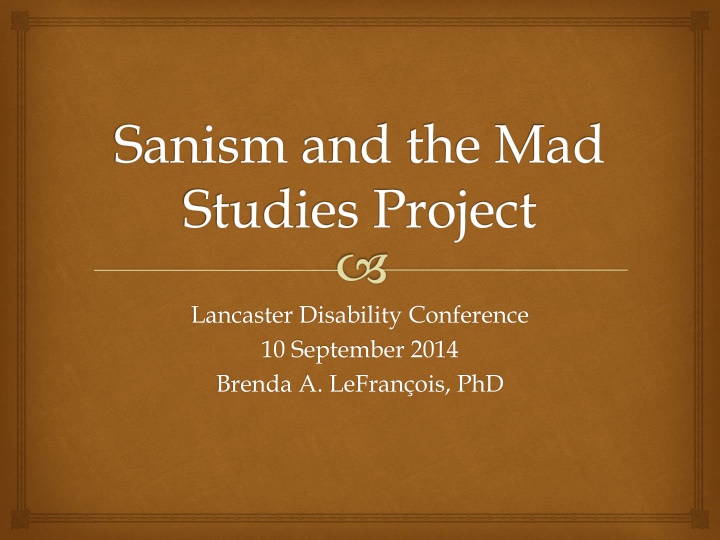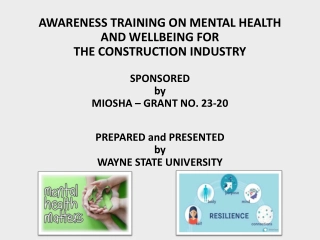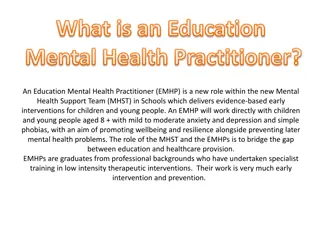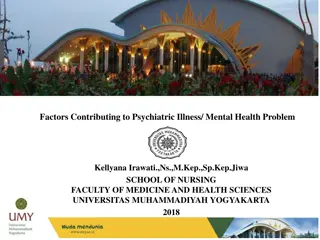Sanism and the Mad Studies Project: Understanding and Challenging Mental Health Stigma
The complexities of sanism and its impact on individuals with mental health challenges. From critical disability studies to anti-psychiatry movements, delve into the intersections of diagnosis, treatment, and societal perceptions. Unpack the nuances of sanism in health and social care settings, as well as within our communities. Discover anti-sanist praxis as an alternative to traditional biomedical approaches, emphasizing participatory practices and respect for individual experiences. Join the conversation on deconstructing normalcy and promoting inclusive understandings of human behavior.
Download Presentation

Please find below an Image/Link to download the presentation.
The content on the website is provided AS IS for your information and personal use only. It may not be sold, licensed, or shared on other websites without obtaining consent from the author.If you encounter any issues during the download, it is possible that the publisher has removed the file from their server.
You are allowed to download the files provided on this website for personal or commercial use, subject to the condition that they are used lawfully. All files are the property of their respective owners.
The content on the website is provided AS IS for your information and personal use only. It may not be sold, licensed, or shared on other websites without obtaining consent from the author.
E N D
Presentation Transcript
Sanism and the Mad Studies Project Lancaster Disability Conference 10 September 2014 Brenda A. LeFran ois, PhD
Mad Studies Critical Disability Studies Critical Psychiatry Critical Disability Studies Anti- Psychiatry Mad Radical Therapists Community Mad Studies Psychiatric Survivors
Sanism Birnbaum coined in 1960s Judi Chamberlin mentalism - 1978 Perlin 1990s to present Diagnosis and labels of mental illness themselves constitute sanism Micro aggressions Systemic sanism Sanism or stigma?
Sanism in Health and Social Care Psychiatrisation (diagnosis, treatment, biomedicalism) Authoritarian vs participatory practice Medical model and pharmaceutical focus Forced treatment Intersections: class sexuality racialization gender age
Sanism in Our Communities Centering professionals academics or other allies Tokenism Limiting membership Denying common purposes or goals Distancing from other marginalized groups Empire building Critical Psychiatry Critical Disability Studies Anti- Psychiatry Mad Radical Therapists Community Psychiatric Survivors
Anti-Sanist Praxis Alternatives to biomedicalism Participatory practice Respect for experiences Deconstructing normalcy Widening and socially reconstructing what constitutes human behaviour, thoughts and feelings Attention to social aspects of distress, including child abuse and other forms of violence and trauma Allowing people to have their own understandings of their experiences and to determine their life course























